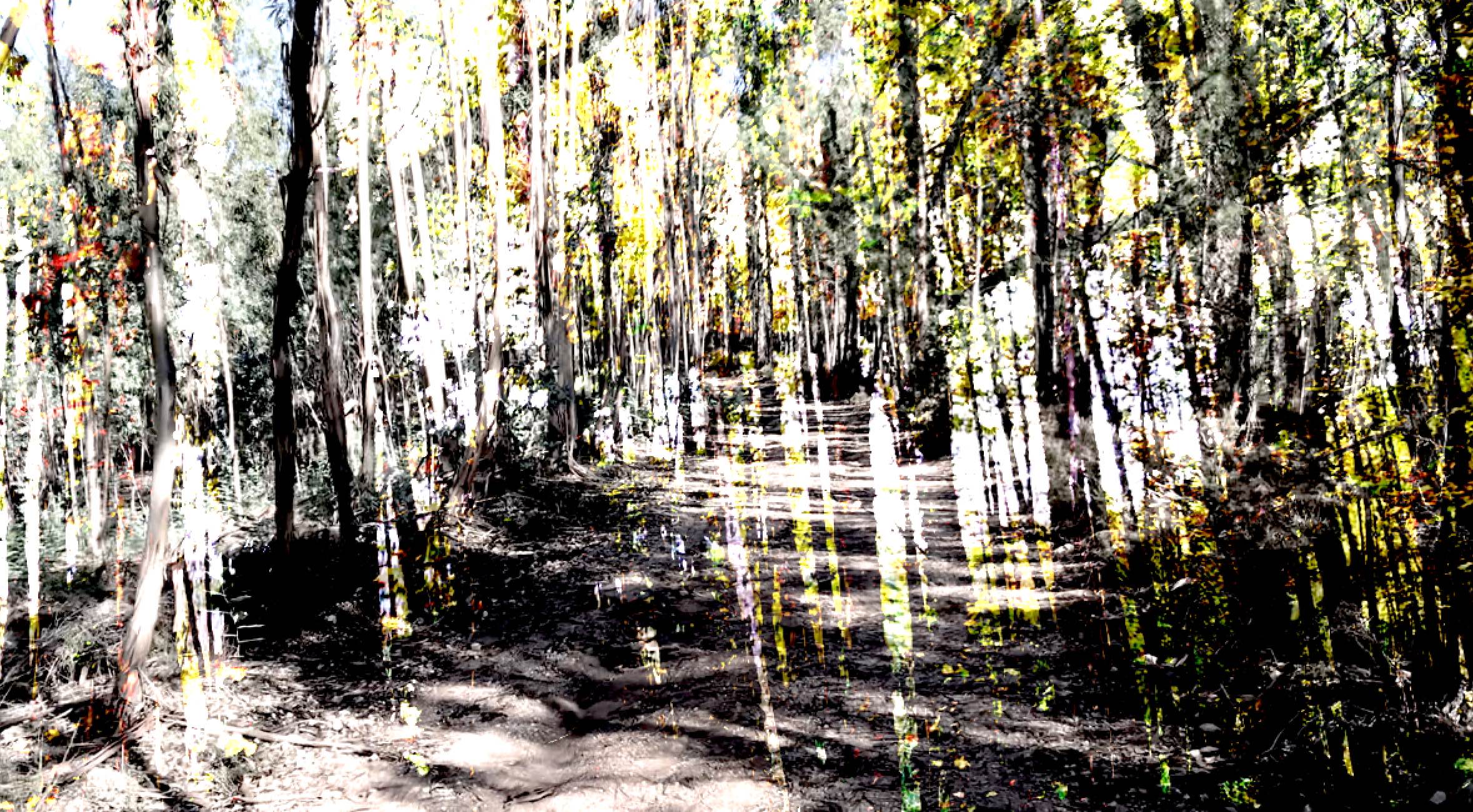This sound walk invites participants to listen to a mix of texts, sounds and songs that explore plant-human relationships, while guiding them through an urban or rural environment of their choice. Through encounters with vegetal life along the way, the walk aims to highlight relationships between plants and people, linking these to the era of the Plantationocene, which ‘points to the ongoing socioecological consequences of plantation agriculture’ (Davis et al. 2019, p.2-3). The guided, interactive encounters of this walk reveal the ways in which our relationships with plants are still guided by the logic of the plantation, highlighting damaging colonial legacies that persist for plants, people and the relations between them through felt, material engagements with vegetal growth. In addition, the walk prompts questions as to the future of plant-human relations in the context of the current climate and biodiversity crises. It proposes small acts which can transform how we think about, care for, and entangle ourselves with vegetal growth where we live, offering respect and care for the differing needs of these species to flourish, and a felt understanding that an ‘ecosystem is not a machine, but a community of sovereign beings’ (Wall Kimmerer 2013, p.331).
Main Navigation
Search
My feed
SWS24
2024
Sound walk
Scott, J. (2024).
Walking in the Plantationocene: exploring the impact of colonial legacies on plant-human relations.
walk · listen · create.
https://walklistencreate.org/walkingpiece/walking-in-the-plantationocene-exploring-the-impact-of-colonial-legacies-on-plant-human-relations/
disrupted walking
A mode of itinerancy which employs one of more tactics to interrupt any efficient journey from a to b; these tactics are often used as tools for playful debate, collaboration, intervention and/or spatial meaning-making.
Added by stephen hodge
Encountered a problem? Report it to let us know.
- Include the page on which you encountered the problem.
- Describe what happened.
- Describe what you expected to happen.


